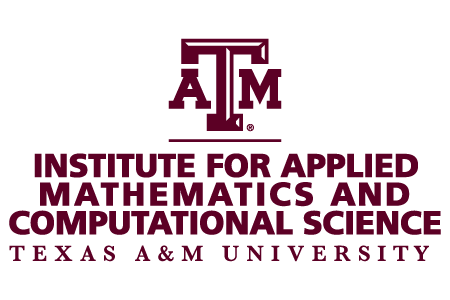Date:February 27-28, 2014
Location: Rudder Tower 3rd floor room 301, Texas A&M University, College Station, Texas
Organizers: Binayak Mohanty (TAMU) and Matthew McCabe (KAUST)
Abstract
This workshop will provide a cohesive direction identifying the current state-of-the-knowledge and science gaps/needs for addressing the upcoming challenges of arid/semi-arid zone hydrology and water sustainability issues for the 21st century in water scarce regions around the Globe, including US southwest, Africa, Middle East, Northwest India, Australia, and others.
Tentative Agenda
|
Thursday – February 27, 2014 |
||
| 8:00 – 8:30 | Registration/Breakfast | |
| Time | Speaker | Title |
| 8:30 – 8:45 |
Dr. Raymond Carroll (TAMU) |
Welcome |
| 8:45 – 8:55 |
Dr. Binayak Mohanty (TAMU) |
Introductory comments |
| 8:55 – 9:30 |
Dr. Murugesu Sivapalan (University of Illinois) |
Predictability of Arid Zone Hydrology: Challenges and Opportunities |
| 9:30 – 10:05 |
Dr. Raghavendra Jana (KAUST) |
Understanding Vadose Zone Hydrology in Arid Regions |
| 10:05 – 10:40 |
Dr. Peter Troch (University of Arizona) |
Co-evolution of climate, Soil, and vegetation and the interplay with Hydrological partitioning in high elevation semi-arid catchments. |
| 10:40 – 11:00 | Break | |
| 11:00 – 11:35 |
Dr. Scott Tyler (UNR) |
Aquatic Habitats in Arid Regions: Canaries in a Fishbowl |
| 11:35 – 12:15 | Discussion Arid Zone Hydrology – Global Challenges and Opportunities | |
| 12:15 – 1:30 | Lunch | |
| 1:30 – 2:05 |
Dr. Kelly Caylor (Princeton University) |
Understanding the role of climate variability as a determinant of dryland structure and function |
| 2:05 – 2:40 |
Dr. Bridget Scanlon (UT) |
Approaches to Enhancing Sustainability of Water Resources in Semiarid Regions |
| 2:40 – 3:05 |
Dr. Georgianne Moore (TAMU) |
Effects of Vegetation Change on Transpiration: When it varies. When it doesn’t. And why. |
| 3:05 – 3:40 |
Dr. Mark Ankeny (INL) |
Improved Sustainability Using Vadose Zone Manipulation in Arid and Semiarid Environments |
| 3:40 – 4:00 | Break | |
| 4:00 – 4:25 |
Dr. Binayak Mohanty (TAMU) |
Soil Hydrologic Processes, Parameters, and Scaling for Arid Zone Hydrology |
| 4:25 – 5:15 | Discussion Arid Zone Hydrology – Observation, Processes, and Parameters | |
|
Friday – February 28, 2014 |
||
| 8:00 – 8:30 | Registration/Breakfast | |
| Time | Speaker | Title |
| 8:30 – 9:05 |
Dr. Peter Kitanidis (Stanford University) |
The Role of Smart Managed Aquifer Recharge and Treatment in Meeting the Water Needs of Arid Regions |
| 9:05 – 9:40 |
Dr. Wade Crow (USDA-ARS) |
A parsimonious data assimilation system for optimally integrating multi-sensor satellite observations over semi-arid areas |
| 9:40 – 10:05 |
Dr. Mark Everett (TAMU) |
Near-surface geophysical techniques and their application to arid zone hydrology |
| 10:05 – 10:40 |
Dr. Witold Krajewski (UIOWA) |
Towards better understanding of floods: Implications for future flood frequencies |
| 10:40 – 11:00 | Break | |
| 11:00 – 11:35 |
Dr. Christopher Duffy (Penn State) |
The Catchment Isoscape: Theoretical and Experimental Strategy for Estimating the Isotopic Age of Soil Water with Implications for Semi-Arid Regions |
| 11:35 – 12:15 | Discussion Arid Zone Hydrology – Modeling, Assimilation, and Analyses | |
| 12:15 – 1:30 | Lunch | |
| 1:30 – 2:00 |
Dr. John Nielsen-Gammon (TAMU) |
When Normal Isn’t Good Enough: Surface Water and Runoff Along the Colorado River of Western and Central Texas |
| 2:00 – 2:30 |
Dr. W. Douglass Shaw (TAMU) |
Five things you need to worry about in thinking about Water and the Economics of Climate Change |
| 2:30 – 3:00 |
Dr. Gretchen Miller (TAMU) |
Improving plant water uptake formulations in Earth system models of arid and semi-arid regions. |
| 3:00 – 3:30 |
Dr. Huilin Gao (TAMU) |
Effects of urbanization and climate change on streamflows over the San Antonio River Basin, Texas |
| 3:30 – 3:50 | Break | |
| 3:50 – 4:30 | Discussion Arid Zone Hydrology – Projection, Extremes, and Economics | |
| 4:30 – 5:00 | Closing Remarks and Action Items for White paper Development | |
| 5:00 | Adjourn | |

